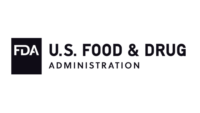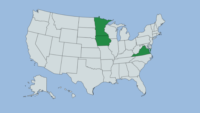FDA, Pennsylvania Enter Partnership to Work Toward Domestic Mutual Reliance, Integrated Food Safety System

Image credit: 12019 via Pixabay
The U.S. Food and Drug Administration (FDA) and the Pennsylvania Department of Agriculture (PDA) recently signed a memorandum of understanding (MOU), entering the agencies into a partnership agreement (PA) to foster interaction and cooperation, and to set the foundation for the ongoing development of an integrated food safety system (IFSS) in Pennsylvania.
Specifically, the MOU enters FDA’s Office of Regulatory Affairs (ORA) and Office of Human and Animal Food Operation’s East—Division 2 (HAF-E2), PDA’s Bureau of Food Safety and Laboratory Services, and the U.S. Department of Health and Human Services (HHS) into the PA. The PA establishes streamlined and efficient processes to coordinate and enhance communication, increase program familiarity, maximize efficiency, and minimize duplication through the exchange of food safety information.
The MOU covers a period of three years, which will give the partners time to measure the PA outcomes, modify the PA if warranted, and renew the PA.
A key step of the PA and achieving an IFSS is establishing domestic mutual reliance between FDA and PDA. Domestic mutual reliance is a seamless partnership that enables FDA and states with comparable regulatory public health systems to fully rely on, coordinate with, and leverage each other’s work, data, and actions to achieve the public health goal of a safer national food supply. The work towards domestic mutual reliance through the PA will focus on the following areas:
- Legal Authority for Information Sharing and Protection of Public Health
- Information Technology for Data Sharing and Collaboration
- Risk-based Inspection Program (e.g., non-contract inspection sharing)
- Emergency Response
- Industry and Community Relations
- Training
- Domestic Mutual Reliance Planning and Evaluation.
The PA outlines FDA’s and PDA’s responsibilities to one another and their mutual goals, spanning the work areas of: information technology for data sharing and collaboration, risk-based inspection, training, legal authority for information-sharing and public health protection, emergency response, industry and community relations, and domestic mutual reliance planning and evaluation.
Looking for a reprint of this article?
From high-res PDFs to custom plaques, order your copy today!






